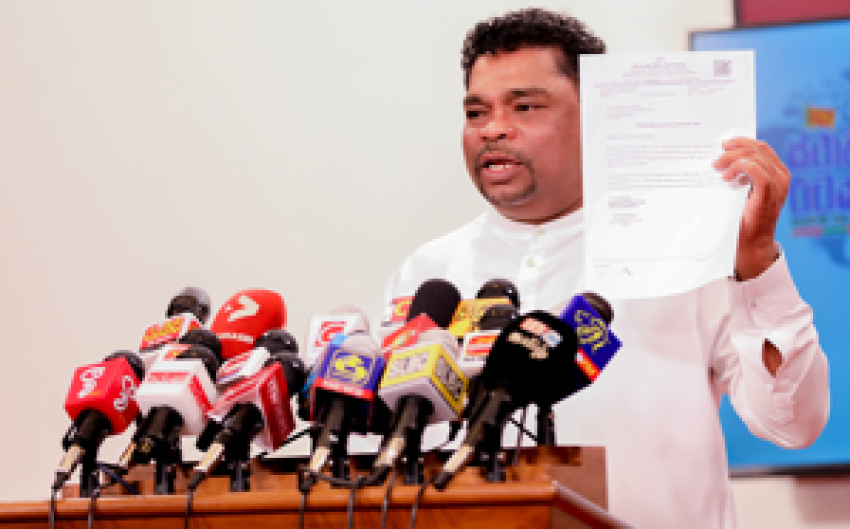These statements were made by the Minister during a press conference held at the Presidential Media Centre today (24), focusing on the theme Collective Path to a Stable Country.’
Expressing his views further State Minister Piyal Nishantha de Silva said;
Addressing the challenges faced by fishermen, falling ill during sea expeditions has emerged as a major issue. Providing timely first aid to ailing fishermen at sea has proven problematic in the past, sometimes necessitating assistance from foreign countries near the working area. Additionally, the intervention of the Sri Lankan Navy to swiftly bring sick fishermen to land incurs significant financial costs.
Tragically, the death of fishermen at sea presents a dire situation. In the event of a fisherman’s demise, whether due to illness or other causes, the vessel is prohibited from engaging in fishing activities. This mandates an immediate cessation of operations, resulting in substantial economic losses, not only for the fishermen but also impacting export income and local fish consumption.
The repercussions extend to the fishing families, as the demise of a fisherman leads to a complete halt in the family’s income, rendering them helpless. The imperative to devise and implement a sustainable program to address these challenges has long been recognized.
In light of these pressing conditions, ‘Dheevara Suva Saviya’ stands out as the most extensive program aimed at enhancing the health and well-being of the fishing community. The inaugural phase of this program, led by Minister of Fisheries Douglas Devananda and Minister of Industry and Health Dr. Ramesh Pathirana, is scheduled to commence on January 26 at the Wellamankaraya Fishery Port in Wennappuwa.
Within this initiative, all fishermen are required to undergo comprehensive medical examinations and obtain a medical certificate. To facilitate this, government hospitals near each fishing port have been designated. The validity of the medical certificate is set at two years, and fishermen must renew it every biennial period. The phased implementation intends to initially cover captains of multi-day vessels, followed by the crew and eventually all fishermen across the island.
A crucial component of the program involves providing first aid training and certification for all fishermen. Given the potential for illnesses at sea, it is imperative for fellow fishermen to administer emergency first aid. Consequently, the training aims to ensure that at least one individual on each vessel is a certified First Aid Trainee. The Sri Lanka Navy’s Medical Corps conducts this training.
Upon the Ministry of Health’s recommendations, every vessel will be equipped with a first aid kit containing essential medicines and emergency equipment. This comprehensive process ensures that only fit and healthy fishermen are deployed for work, reducing the risk to their lives and minimizing the expenses associated with transporting sick fishermen. The collaborative effort of the Ministry of Fisheries, the Department of Fisheries and Aquatic Resources, the Ministry of Health, and the Sri Lanka Navy drives the successful implementation of this program.




















